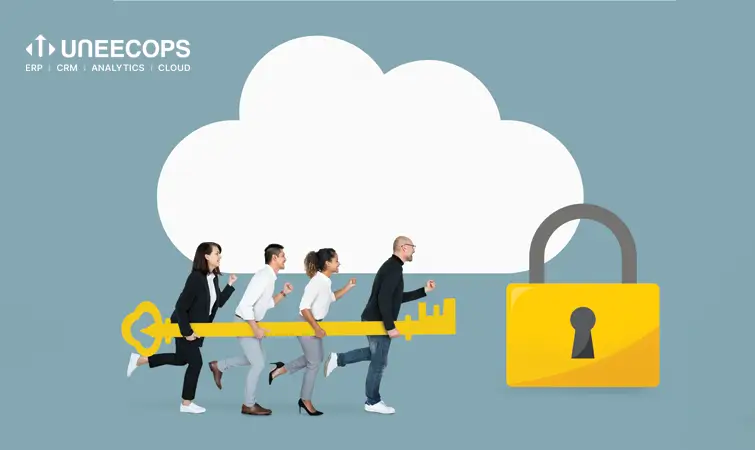Yes, when the Cloud rolls in, cost savings fall into place gradually. Cloud deployments have an average of lower cost of ownership as compared to on-premise deployments. Alongside, the payback period and implementation time of Cloud ERP is generally faster than on-premise. Cloud continues to provide benefits to business users and renders huge cost savings in terms of investing in heavy infrastructure & more. Therefore, the quantifiable returns from cloud deployments are somewhat outpacing the returns from on premise deployments in a common business scenario.
Almost two-thirds of businesses are contemplating to migrate to ERP cloud, despite many of them are moving sensitive data and security. Thus, according to CSA’s Impact of Cloud on ERP report, businesses will spend a total of spend $30 billion on cloud ERP systems in 2021, and a total of $266 billion on all public cloud services.
But, moving to a whole new Cloud ERP is no small feat. Before selecting a cloud-based ERP (enterprise resource planning) application, here are critical questions you need to ask:
What are the migration missteps?
Enterprises have good reasons to talk about delays in migration data. Many business users and CIOs have already experienced data hiccups due to the complexity of moving from on-premise to the cloud. Only a few met their expectations for such data migrations. Businesses contemplating a cloud move need to plan and consult the right ERP software partner to ensure that their ongoing business will not be impacted with the Cloud move and there are no unnecessary delays.
What are the safety protocols?
Moving sensitive data gave businesses the biggest pause about the cloud move. Generally, safety parameters remain one of the top concerns of business people to embark on cloud journey. To rest assured that your data will be safe and you will not face any bottleneck when it comes to data security.
Businesses on the whole are concerned about the compliance challenges, disruption to business operations and the time taken to migrate the data. So, a trusted partner can help by keeping a check on vulnerability assessments, security information and help you mitigate your ongoing concerns head-on.
Recommended for you: The need for a multi-lingual ERP for your Growing Business
What is the financial stability of the vendor?
What happens to your critical data if your cloud ERP vendor goes out of business? Make sure you know. Knowing their financial stability is extremely important and especially for your long-term prospects.
In a nutshell, you just can’t pick up and move to the cloud. You need to monitor various factors in account before proceeding further with cloud ERP.






